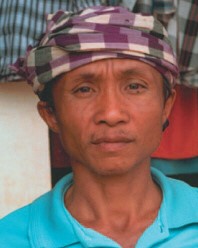Lao Ngaew in Thailand

Photo Source:
Copyrighted © 2026
Peoples of the Buddhist World, Asia Harvest All rights reserved. Used with permission |
Send Joshua Project a map of this people group.
|
| People Name: | Lao Ngaew |
| Country: | Thailand |
| 10/40 Window: | Yes |
| Population: | 36,000 |
| World Population: | 36,000 |
| Primary Language: | Thai |
| Primary Religion: | Buddhism |
| Christian Adherents: | 0.00 % |
| Evangelicals: | 0.00 % |
| Scripture: | Complete Bible |
| Ministry Resources: | Yes |
| Jesus Film: | Yes |
| Audio Recordings: | Yes |
| People Cluster: | Tai |
| Affinity Bloc: | Southeast Asian Peoples |
| Progress Level: |
|
Introduction / History
Because of their wide geographic dispersion, gaining an accurate population figure for the Lao Ngaew is difficult. Their ancestors lived in the eastern part of Xiangkhoang Province and western Houaphan Province in Laos. In the 1860s they were forced to migrate southward into the Mekong River basin due to pressure from the Chinese who came down into their part of Laos. Later they decided to migrate across the Mekong into Thailand, where they proceeded to form communities in extremely diverse locations. Today the majority live in central Thailand, but several Lao Ngaew villages are on the banks of the Mekong River in Nong Khai and Loei provinces.
Although the Lao Ngaew language is considered closely related to Lao and Isan, "linguistic research found that the main factors influencing the pronunciation of tone in the Lao Ngaew dialect were connected with speech, position of syllables, degree of emphasis and stress." There have been several interesting linguistic studies regarding the Lao Ngaew language.
The Lao Ngaew people have never appeared on lists of ethnolinguistic groups because their language is not considered distinct from other Tai varieties. However, the Lao Ngaew view themselves as a distinct people with a common history and ethnicity. In the majority of their locations, they prefer to live with members of their own ethnic group. In other places they share their communities with members of other groups that migrated from Laos, such as the Phuan and Lao Wieng. In those places where Thai people live nearby, the Lao Ngaew seem to be looked down upon by the Thais, who "consider the Lao Ngaew as a people without their own ethnic culture, who do not preserve their own tradition and customs but too easily adopt the customs of other ethnic Tai groups."
Joachim Schliesinger reported that their main areas of habitation are Lop Buri Province (especially Ban Mi and Khok Samrong districts), the Tha Tako District of Nakhon Sawan Province and scattered parts of Singburi, Saraburi, Chaiyaphum, Phetchabun, Nong Khai and Loei provinces. They all live in Thailand.
What Are Their Lives Like?
When a Lao Ngaew couple gets married, the groom's family is required to pay money to the bride's family. The Lao Ngaew are able to intermarry with people from other ethnic groups, although not all other groups are keen to marry the Lao Ngaew. This is especially true with the Phuan people, who consider the Lao Ngaew socially and culturally inferior to themselves.
What Are Their Beliefs?
Although almost all Lao Ngaew are professing Buddhists, their beliefs are mixed with numerous animistic rituals and spirit worship. Some of their most revered spirits are those of the village, house, forests, water, trees and sky. "They honor the most important spirit, called don hor once a year with pigs and rice whisky at the village spirit house, often located behind the temple."
?
What Are Their Needs?
These people need to realize that they cannot please God without being empowered by the Holy Spirit. They cannot have the Holy Spirit without Jesus Christ.
Prayer Points
Pray for a movement of Jesus to heal and strengthen Lao Ngaew communities.
Pray for a "Book of Acts" type of movement to Christ among the Lao Ngaew.
Pray for the Lao Ngaew people to understand and embrace that Jesus wants to bless their families and neighborhoods.
Pray for Holy Spirit anointed believers from the Lao Ngaew people to change their society from within.
Pray for a movement in which the Holy Spirit leads and empowers disciples to make more disciples.